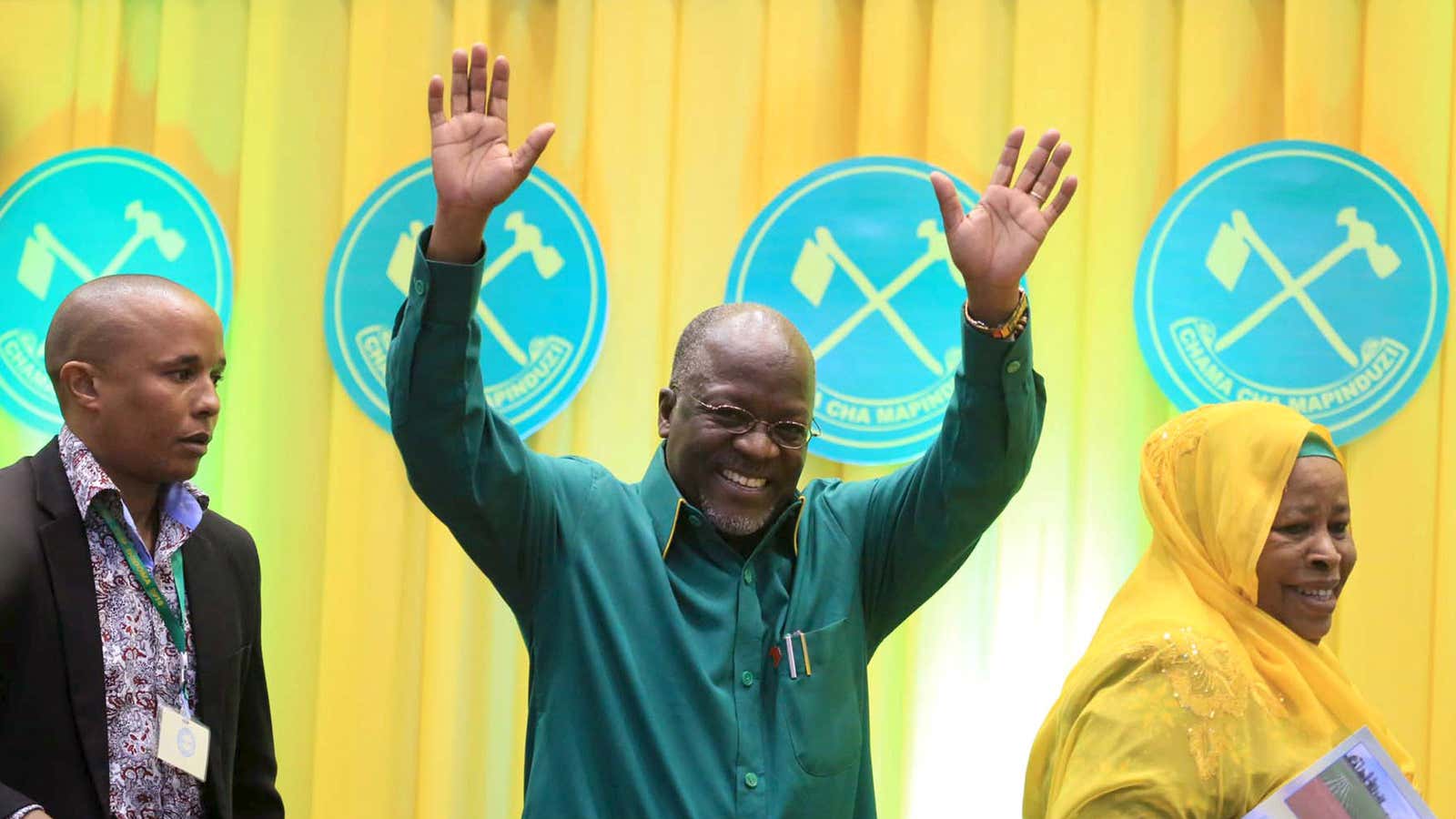John Pombe Magufuli has been declared the winner of Tanzania’s Oct. 25 presidential election, overcoming a strong challenge from former prime minister Edward Lowassa of the opposition Chadema party and helping his own party, the ruling Chama Cha Mapinduzi (CCM), secure a two-thirds majority in parliament.
Magufuli, a former chemistry teacher who served as works minister in the previous administration, becomes the country’s fifth president since it gained independence in 1961. He inherits a country that is averaging 6% economic growth over the past decade—but is not without its problems. Tanzania’s emerging oil and gas sector has seen its prospects deteriorate along with the price of oil. An evolving political crisis in Zanzibar and pressure to hold a referendum on constitutional reform promise additional challenges.
And despite its strong growth, East Africa’s second-largest economy is struggling to create jobs for its young population. Voters, 57% of whom are between the ages of 18 and 35, will look to the new president to solve this problem.
Though the opposition has reportedly rejected the results, Tanzanians have delivered a clear win for CCM. (They’ve also made history by electing the country’s first female vice president.) But this victory has been anything but comfortable for the ruling party. Gone are the days when CCM would win in landslides with 80% of the vote. The 58% of the vote that Magufuli secured is the lowest winning vote share ever received by a ruling party candidate. The party also lost seats in key areas of the country, including the urban centers of Dar es Salaam, Arusha, and Kilimanjaro; some well-known ministers were among the defeated.
All this indicates that it can no longer be business as usual for the ruling party.
This has been an historic election for the opposition, too. Lowassa’s 40% is the highest vote share ever secured by an opposition candidate. And collectively, the opposition has managed to win more than 70 parliamentary seats, the most it has garnered since multiparty democracy came into effect in 1995. This should give it a more powerful voice in parliament, even if it does not have enough votes to block legislation.
Despite this unprecedented success, the opposition will need to do some soul-searching of its own. By nominating Lowassa, a figure tainted by corruption scandals, as their candidate, opposition leaders ceded their most powerful weapon against the ruling party—their anti-corruption platform. And now, Chadema, and its coalition partners in Ukawa, will need to figure what they stand for now in this new dispensation.
With added representation in parliament, the opposition can no longer simply be the party of “no.” If it is to position itself as an alternative in time for the next election, it will need to show voters it can present alternative solutions to the myriad of challenges facing Tanzania.
Voters have indicated that they are especially eager for improvements in jobs, healthcare delivery, and education, and they will not tolerate a political establishment that is deaf to these concerns. CCM may have won another mandate but the victory comes with a warning—get the job done or else.
